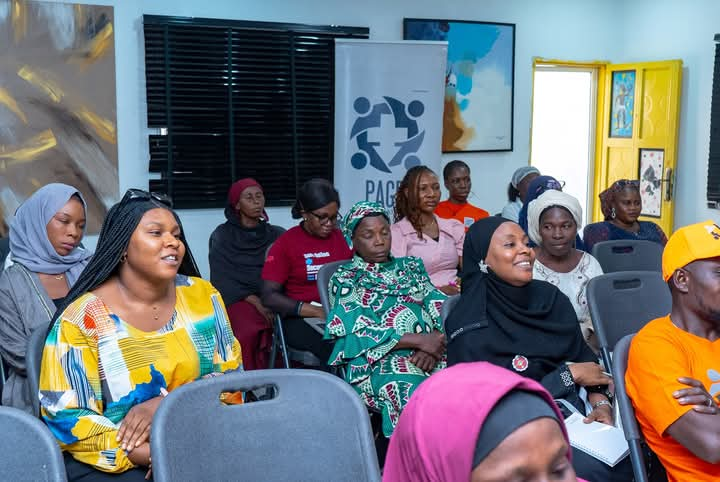Maureen Okpe
PAGED Initiative, a Non-Governmental Organisation have decried the incessant insecurity as a major issue hindering the girl child’s access to education.
Programme Director PAGED Initiative, Ummi Bukar stated this at a social discourse event, in Abuja, to commemorate the 16 Days of Activism with theme, ‘speaking out against sexual and Gender based violence SGBV and it’s impact on girls education.
Bukar emphasized insecurity as a major issue that must be addressed for the country to experience increase in girls enrolment in school.
According to her, the long distance to school in Northern Nigeria, occasioned with issues of abduction, rape and early marriage have heightened the cases of gender based violence towards school girls.
She highlighted gender-based violence as a major barrier that prevent girls from achieving their full potentials.
Bukar said, “the harsh reality is that many girls in Nigeria, particularly the north are not only denied access to education but are subjected to violence, exploitation, and discrimination because of their gender.
“The more the insecurity is happening in the northern part of Nigeria, the little progress that we’ve made in terms of girls’ education is rendered useless. Gender-based violence is top most on the list of the barriers that are preventing girls from achieving their full potentials.
“Whether it be in the form of early marriage, sexual violence, or the fear of abduction, these experiences create an environment where learning becomes a distant dream.
“Another barrier is distance to school. According to the Nigerian constitution, no community should be more than three kilometers to a school but we have seen communities that are more than 20 kilometers to a school. So, distance to school is also a factor and the girls get raped on the way to school.”
Speaking further she said, “We must ensure that girls can attend school without fear of violence, harassment, or discrimination. We must also work towards creating a future where every girl, regardless of her background, has the opportunity to pursue her education in a safe and supportive environment.”
Also, Executive Director, Resource Centre for Human Rights and Civic Education, (CHRICED) Ibrahim Zikirullahi reiterated the low representation of women in government stressing the case in Kano.
He said, “since the inception of the civilian based governance no woman have been elected into position. In the 44 local government no woman have ever been a chairperson. If women are not at the decision making table, there is no way that decision will be favourable to them.”
For her part, Maryam Danburam of Malala Foundation, stated that, for too many girls the threat of violence, at home, in schools or within their communities, creates an environment of fear that disrupts learning, diminishes their opportunities and undermine their futures.
She noted that, “PAGED Initiative’s effort to spark meaningful dialogue on the actions needed to support survivors, strengthen advocacy and drive sustainable change are vital.”

